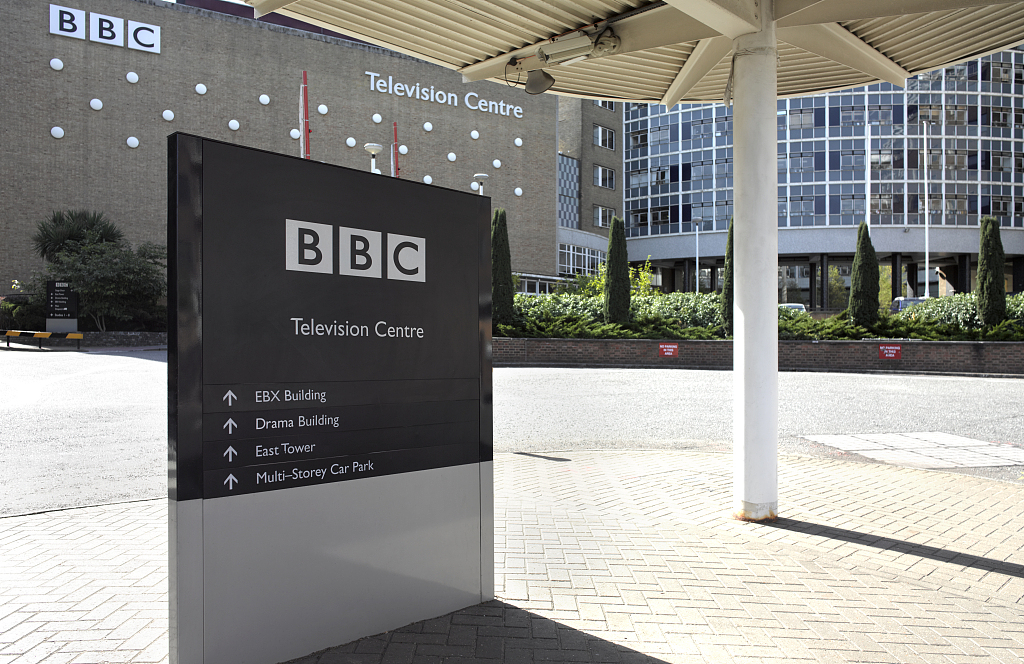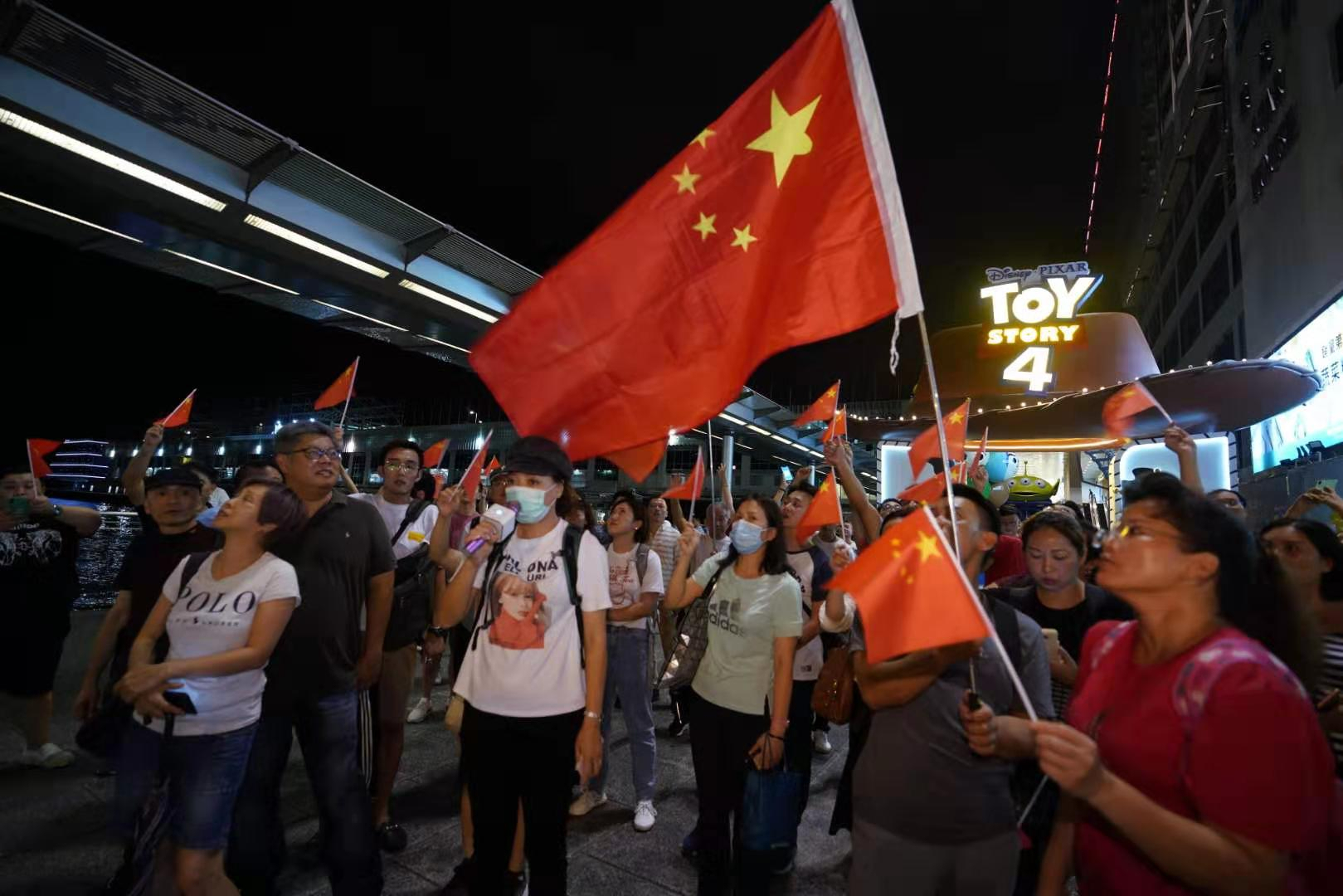

Editor's Note: Tom Fowdy is a British political and international relations analyst and a graduate of Durham and Oxford universities. He writes on topics pertaining to China, the DPRK, Britain, and the United States. The article reflects the author's opinions, and not necessarily the views of CGTN.
The British Broadcasting Corporation has waged an extraordinary campaign against China over the past few months. Despite its claims to superiority and impartiality, the organization has produced an overwhelming proportion of intensively negative coverage focused on China which has led its editorial coverage, featuring on its news homepage throughout July, August and September.
Although this has focused largely around events in Hong Kong, it has also covered a range of other topics including anything which may be used to place the country in a negative light, no matter how trivial it might be. In doing so, it has placed a critical take on China at the forefront of its coverage every single day for several weeks now.
The stories themselves have not offered much nuance in their coverage. Rather than offering a balanced perspective and considering the other side of the argument, they have instead passed liberal assumptions off as given and dismissed dissenting views as mere propaganda.
This has included the religious-like glorification of Hong Kong protesters and their narrative, the demonization of the city's police forces, repeating and talking American government talking points at face value and the mobilization of anti-China "experts" to project misinformation.
When considering it all, the BBC appears to be waging a full on information war and public opinion campaign against China.
Is the BBC biased? Its defenders will say it isn't. Believing in the rudimentary liberal assumption that only "other" countries with different political systems engage in "propaganda" and that the BBC is therefore truthful, honest and as it claims, impartial. It cannot possibly have an agenda behind it.

BBC Television Center /VCG Photo
On the matter of UK domestic politics, it certainly adheres to this line, simply because it comes under heavy scrutiny from both sides of the political spectrum if it cannot live up to that, with both Labour and Conservatives accusing it of bias.
However, on a foreign affairs level, the BBC's editorial line has less restraint. Rather than looking for perspective and balance, it openly takes a liberal normative view in how it presents given issues, as Western viewers are not capable of realizing this.
As high profile presenter Andrew Marr commented on the institution in 2006, the BBC suffers from a "cultural liberal bias." As a result, due to Western liberalism's emphasis on claiming a universal political "truth" as its own, the BBC follows suit with this in its coverage, carefully following the lines of Western governments whilst dismissing claims to the contrary, regardless of their factual merits.
To elaborate on how this translates into coverage on China, let's start with Huawei: when the U.S. says Huawei is a threat, the BBC absorbs such as a normative truth, placing it in every relevant article that "Huawei is accused by some Western governments of being used for espionage." It does not offer a counterview to these claims, but interprets the narrative as fact.
On the contrary, when Huawei stated that the U.S. had engaged in cyber attacks against it, the BBC was skeptical and stated "there was no evidence" for such claims.
This position also reveals how and why the BBC have essentially glorified the Hong Kong protests on a daily basis, diminishing any disagreement with their narratives as a fabricated view of the Communist Party. This modus operandi has repeated itself in every other phenomenon.

Hong Kong residents wave Chinese national flags in a display of strong support to national unity, in China's Hong Kong Special Administrative Region, August 5, 2019. /CGTN Photo
But it doesn't end with that. BBC reporters have held an explicit ideological bias and contempt for Chinese perspectives on social media. Stephen McDonnell, a correspondent in Hong Kong who is covering the protests, stated openly that "1.4 billion Chinese" were "in the dark" and "brainwashed" unable to receive the truth regarding Hong Kong.
He also publicly supported protesters, urging them to throw their petrol bombs "more accurately" at police. He has blocked everyone who has challenged him.
In addition, the BBC has also weaponized misinformation in its coverage. On Saturday, the BBC ran a piece on Confucius Institutes where it took as a given claims that the Chinese-funded language centers were being used for "propaganda."
In doing so, it quoted a dubious "expert" known as Matt Schrader, an individual from a U.S. government-funded institution with no background in Chinese studies. Schrader proceeded to claim that Confucius institutes were being used for military intelligence purposes – a claim which is not only unsubstantiated, but completely ridiculous.
Yet as a whole though, the phenomenon seems less like just an ideological bias but an outright assault against China itself. Undoubtedly, the BBC is waging an aggressive and intentionally negative publicity campaign against the country.
It seems determined to replicate American talking points as facts and is equally determined to portray everything in the most negative light possible. We must transcend the assumption that just because it is a Western broadcaster, such does not mean that it is any more honest or impartial than others.
(If you want to contribute and have specific expertise, please contact us at opinions@cgtn.com.)

Copyright © 2018 CGTN. Beijing ICP prepared NO.16065310-3
Copyright © 2018 CGTN. Beijing ICP prepared NO.16065310-3